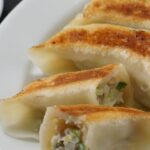
The Code for the labeling of “Extra virgin olive oils” was approved to be included in Fair Competition Codes on February 17, 2023, and a public notice was issued on March 22, 2023, pursuant to Paragraph 4 of the same Article.
Background
According to the international standards of the International Olive Council (hereinafter referred to as the “IOC Standard”), which has 43 countries in the world as its members, olive oils are classified by their qualities according to differences in manufacturing methods, refining details and so on, and the highest-quality product is designated as “Extra virgin olive oils.” Since Japan is not a member of the IOC, there is a need to provide Japanese consumers with accurate information on the qualities and ingredients of extra virgin olive oils and to develop a fair trade environment.
Definition
“Extra virgin olive oils” refer to oils and fats obtained solely from olive fruits by mechanical or physical means, particularly under conditions that do not cause changes in the oils and fats due to temperature, and which meet all of the following requirements.
(1) Oils have not undergone any treatment other than water washing, decantation, centrifugation, and filtration.
(2) Oils conform to the specifications and standards prescribed in Enforcement Regulations of The Fair Competition Code concerning the labeling of “Extra virgin olive oils” (hereinafter referred to as the “Enforcement Regulations”).
Required labeling items
Business operators are required to clearly indicate items concerning “grade*” on the containers and packaging of extra virgin olive oils in easy-to-read locations in Japanese in accordance with the Enforcement Regulations.
*Grade:
Shall be indicated as* “エキストラバージンオリーブオイル”, ”エクストラバージンオリーブオイル”, “エキストラバージン”, or “エクストラバージン”.
(“オイル (EN:oil)” may be replaced by “油”(EN:oil))
*There are some ways of indications for Extra virgin olive oils in Japanese.
“Extra virgin olive oil” shall be indicated for the Grade labeling item in the mandatory labeling frame.
Warning labeling for cross-contamination of allergen
In the manufacturing process of extra virgin olive oils, if specified allergens (for mandatory labeling in Japan) are used on the same production line, they must be labeled in accordance with the Food Labeling Standards. If allergens (for recommended labeling in Japan) are used on the same line, it is desirable to provide consumers with information on these ingredients to help them understand allergen labeling.
Overview
The point this time is the fact that it is essential to indicate the contamination by eight specified allergens (for mandatory labeling in Japan) in addition to the definition and the grade indication. We think this implies that the definition of extra virgin olive oils includes strict quality control that makes even contamination alerts, which are originally voluntary labeling, be needed to be labeled.
And this should be fully noted. It would be a good idea to take this opportunity to reconsider the importance of contamination labeling.
Share/Like/Follow:
Newsletter Signup
We issue monthly e-newsletters, which provide you with the latest updates on food labeling/regulations in Japan.
If you want to make sure to not miss any issue, please click below.
Related Service
Research Services on Ingredients & Food Labeling -For the Japanese Market-
We verify the conformity of ingredients and additives with the standards for use in Japan based on specifications such as formulation lists. We also verify the conformity of the proposed labeling of ingredient names, nutrients, etc. with the labeling standards based on specifications such as formulation lists.
Label bank Co., Ltd. Regulatory Review and Development
Specializing in nutrition, she is engaged in research work on ingredients and labeling drafts for food products distributed mainly in Japan, as well as consulting.






